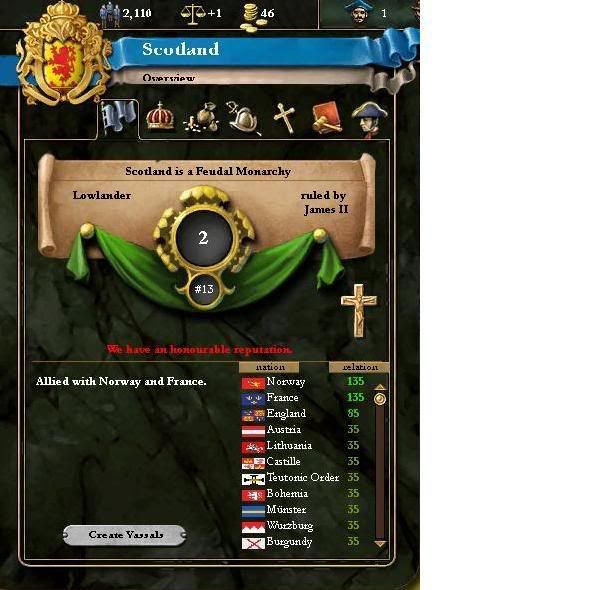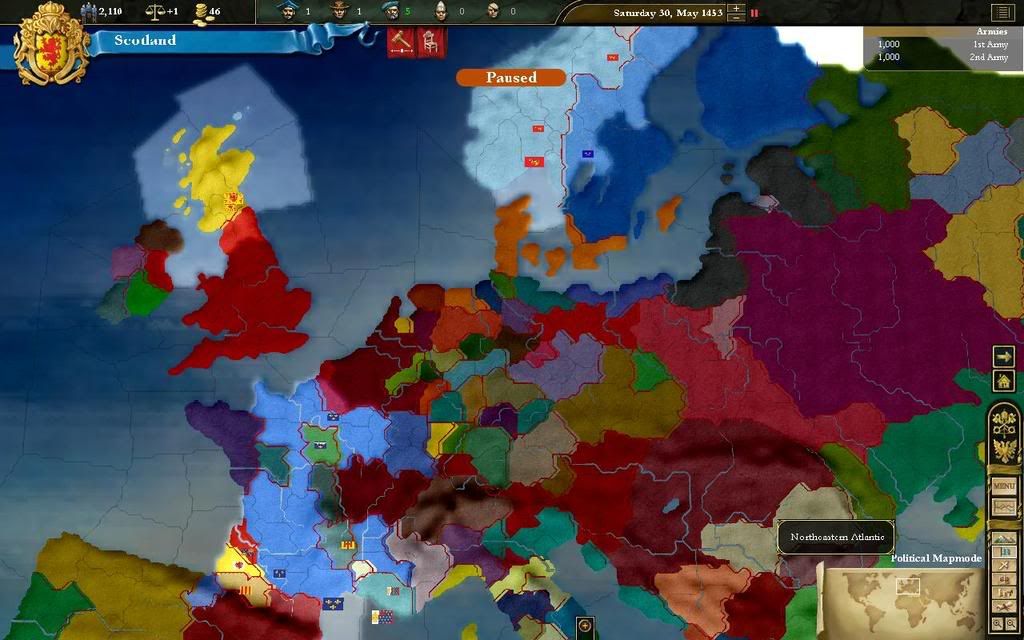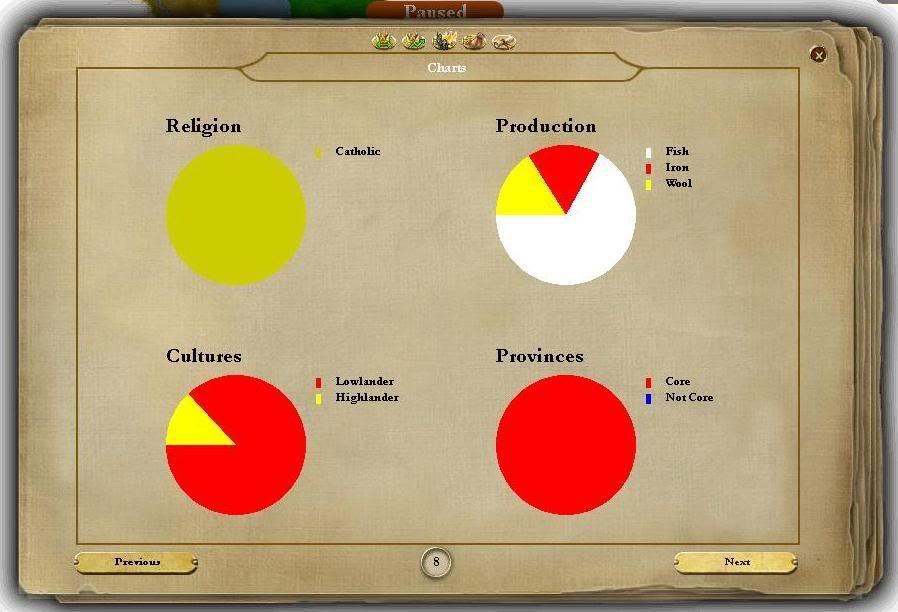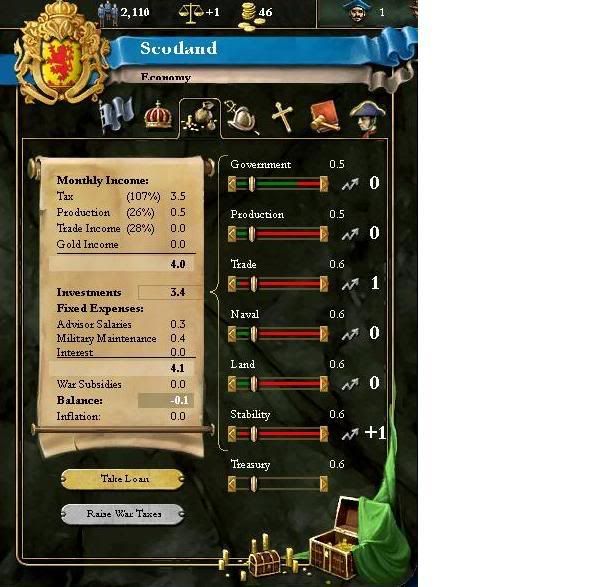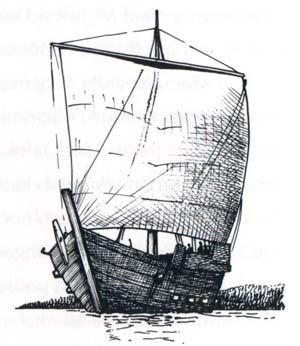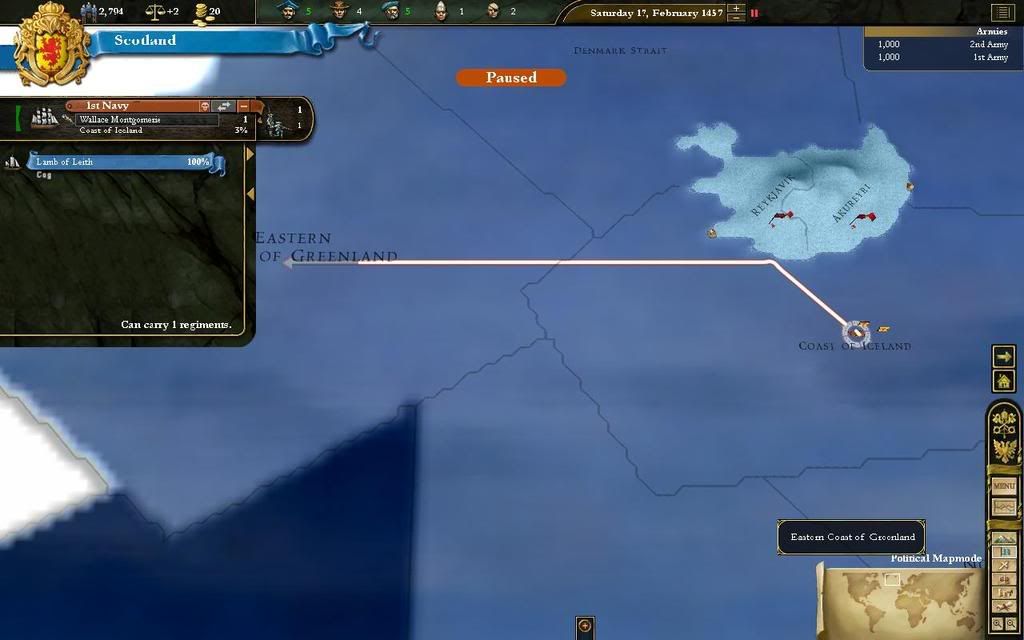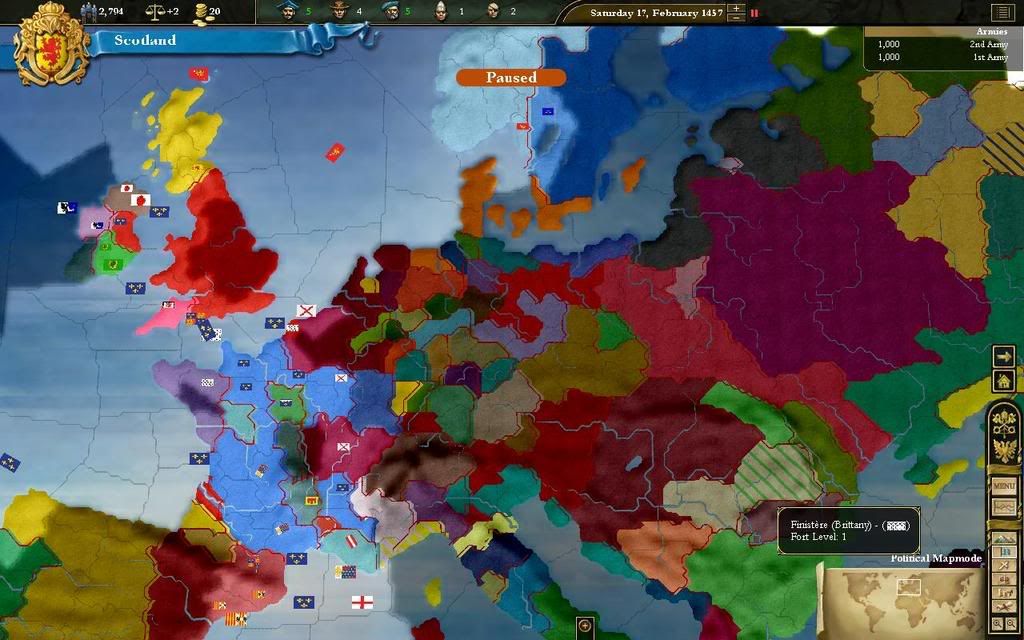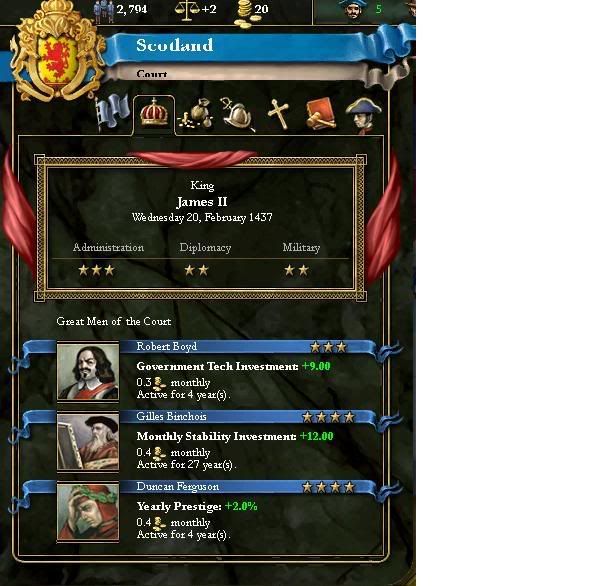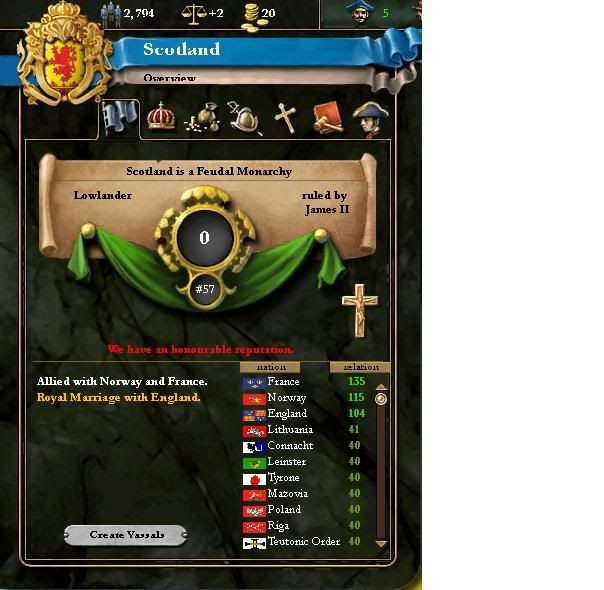Scotland the Brave (....but a wee bit cowardly sometimes....)
Who: Scotland
When: May 1453
Objectives: Create an overseas colonial empire (the Lion Rampant carried across the Atlantic, Pacific and Indian Ocean)
Version: 1.3
Style: Historian-ish (with a few rants/additions....)
The small print: My first game of EU3, my first AAR, my first post (!!?!!), but hell why not.....
Updates: every 2-3 years game time (unless it is tedious….)
Scotland: free but pooped
“It is in truth not for glory, nor riches, nor honours that we are fighting, but for freedom - for that alone, which no honest man gives up but with life itself.’
Declaration of Arbroath, 1320
The 13th and 14th centuries had seen Scotland survive the Wars of Independence with England, but at a cost. She was independent, but exhausted.
James II was born in 1437, and inherited the throne at the age of seven. The child king saw noble families, particularly the Douglas’, seek to take key decisions.
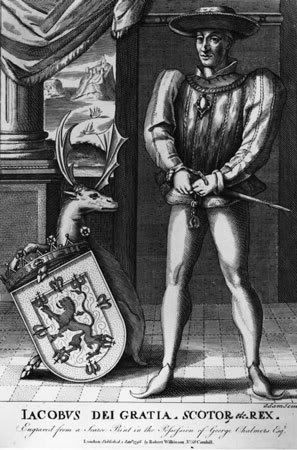
Attempts to regain control of his throne lead James to feuding nobility, murder and intrigue. In 1452 James himself stabbed the 8th Earl of Douglas to death over dinner, creating intermittent civil war.
Who: Scotland
When: May 1453
Objectives: Create an overseas colonial empire (the Lion Rampant carried across the Atlantic, Pacific and Indian Ocean)
Version: 1.3
Style: Historian-ish (with a few rants/additions....)
The small print: My first game of EU3, my first AAR, my first post (!!?!!), but hell why not.....
Updates: every 2-3 years game time (unless it is tedious….)
Scotland: free but pooped
“It is in truth not for glory, nor riches, nor honours that we are fighting, but for freedom - for that alone, which no honest man gives up but with life itself.’
Declaration of Arbroath, 1320
The 13th and 14th centuries had seen Scotland survive the Wars of Independence with England, but at a cost. She was independent, but exhausted.
James II was born in 1437, and inherited the throne at the age of seven. The child king saw noble families, particularly the Douglas’, seek to take key decisions.

Attempts to regain control of his throne lead James to feuding nobility, murder and intrigue. In 1452 James himself stabbed the 8th Earl of Douglas to death over dinner, creating intermittent civil war.


